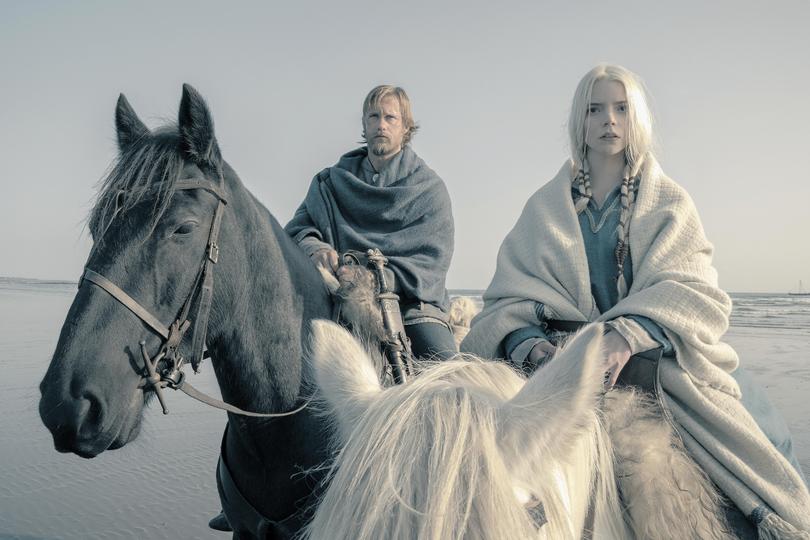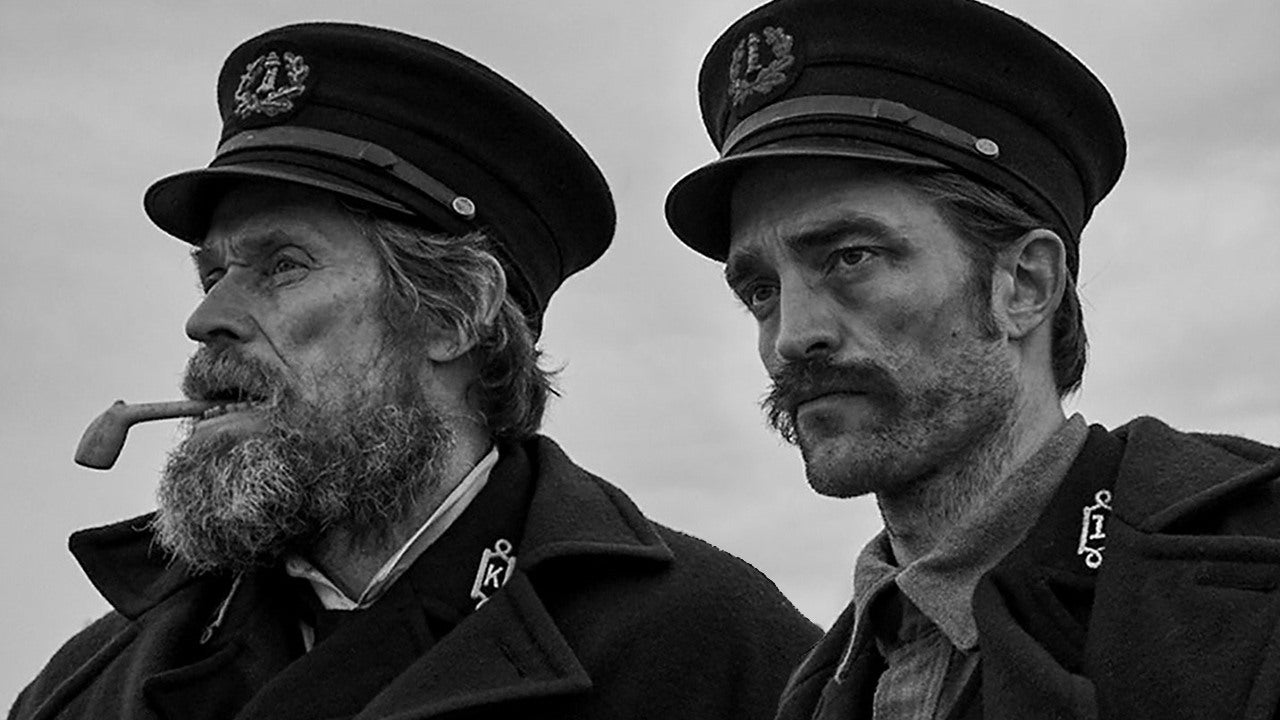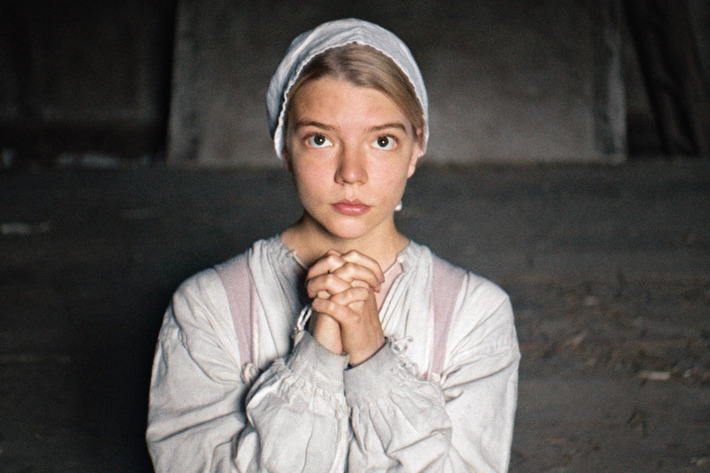4. The Northman (2022)

Let’s be honest here: A hammy, star-studded $90 million Viking epic about an exiled prince named Amleth (Alexander Skarsgård) avenging the murder of his late father at the hands of his uncle sounds flat-out awesome on paper. But to be fair, it also felt at the time like a shockingly unexpected career pivot from the indie darling formerly known for a pair of low-budget, slow-burn New England folktales.
The promise of a cross between the testosterone-fueled mayhem and brawny action of beefcake macho men staples like “Conan the Barbarian” and the spiritual, contemplative depth of, say, “Andrei Rublev” set many fans for disappointment, but the prospect of an arthouse auteur like Eggers being given the opportunity to work on such an epic canvas for the first (and most likely only) time in his career was too compelling to ignore altogether.
Sure enough, at least in terms of sheer scale, “The Northman” resulted in Eggers’ most expansive and ambitious project to date. And if watching psychedelic rituals, decapitations, a single-take berserker raid on a Slavic village; or two naked, sweaty warriors fighting to death atop an erupting volcano seems like the kind of thing that will float your boat, then this one will do the trick.
Based on the same 12th-century Nordic legend that inspired Hamlet, the movie allegedly underwent a series of late reshoots while Eggers was evidently kept on a short leash without final cut privileges, which explains why overall it feels like a minor retreat coming off two strikingly distinctive and formally audacious offerings as “The Witch” and “The Lighthouse”. Here’s hoping a bolder, and extended director’s cut sees the light of day at some point.
3. Nosferatu (2024)

Both F.W. Murnau and Werner Herzog’s stabs at Nosferatu — itself an unauthorized take on Bram Stoker’s Dracula — are stone-cold masterpieces that loom large in the history of gothic horror cinema. Following in their footsteps seems like a fool’s errand, which raises the question, why even bother in the first place? It’s only when you take into consideration Eggers’ calling cards and core obsessions that the original impulse starts to make more sense.
After all, who better than the mastermind behind modern gothic masterpieces like “The Witch”, and “The Lighthouse” — who by the way first watched Murnau’s film on VHS at the ripe age of 9 and mounted a stage version of the story as a teen — to resurrect the subgenre’s ur-text? Eggers’ tale of repressed sexuality, superstition, mass hysteria and puritanical norms doesn’t quite reinvent the wheel but freely updates the centuries-old source material to make it feel fresh again with inspired aesthetic choices, stellar performances, and breathtaking sequences with a weighty sense of dread that keeps you on the edge of your seat (particularly real estate agent Thomas Hutter’s first arrival to Count Orlok’s castle).
At its best, 2024’s “Nosferatu” reminds you why vampire stories remain a fertile ground for grade-A scares for well over a century’s worth of cinema history. Even the parts that don’t work (does this really need to be 135-minutes long?) are easily brushed off when you get to hear Willem Dafoe chew up lines like “”I have seen things in this world that would have made Isaac Newton crawl back into his mother’s womb!”
2. The Lighthouse (2019)

In what surely will go down as one of the handful cult classics of the 21st century so far to truly cement a place in the modern cinematic canon, Robert Pattinson and Willem Dafoe light up the scenery and are a riotous blast farting, drinking, and bickering their way through a four-week stint together as Wake and Winslow, a pair of turn-of-the-century lighthouse keepers who flip out after spending too long by their own on a remote New England island.
If “The Witch” showed flashes of Eggers’ knack for historical verisimilitude, unorthodox aspect ratios, and commitment to regional accents and old-timey diction (Hark!), then “The Lighthouse” dialed it all up to 11 and forever solidified his status as one of the most singular voices in American cinema. We could lump endless praise on the film’s claustrophobic atmosphere, surreal sequences, layered symbolism, and underrated bits of comedy. There’s also plenty of nods to Greek mythology, Jungian psychology, Lovecraftian horror and whatnot baked into the story as well if you’re willing to dig a little deeper. But really, the undeniable highlight of this Gothic fever dream is watching these two delirious buffoons exchange sea shanties, spin old yarns, and spill their beans over little over five weeks (or has it been two days? Who knows, really?).
1. The Witch (2015)

In the $4m sleeper Sundance hit that launched Robert Eggers and Anya Taylor-Joy’s careers into the stratosphere, an isolated puritanical family sees their faith tested and gradually implodes from within after being exiled to the fringe of the Massachusetts wilderness in 17th-century New England. Gnawing paranoia and religious hysteria build to a fever pitch after the family’s newborn son suddenly disappears one day without a trace, with the parents wrongly accusing their teen daughter Thomasin (Taylor-Joy) of practicing witchcraft, all while a sinister force beyond their control lurks in the shadows.
Not only one of the most expertly crafted, well-researched and influential horror movies in recent memory but arguably the crowning jewel in Eggers’ short filmography so far, “The Witch” had genre and arthouse fans alike shrieking in delight with a bone-chilling climax for the ages that is almost impossible to shake and still lives rent-free in our minds.
Not to take anything away from his more high-profile, big-budget offerings — Eggers has undeniably honed his craft on a purely visual and technical level over the past decade — but “The Witch” is still his closest brush to perfection and the film that goes hand-in-hand more than any other in his catalog with his deep-rooted love for folklore and the occult. Overall, it’s amusing to hear the director openly admit that he can no longer bear watching the film nowadays because he sees it as too amateur — one could argue he’s struggled to achieve the same level of success again.